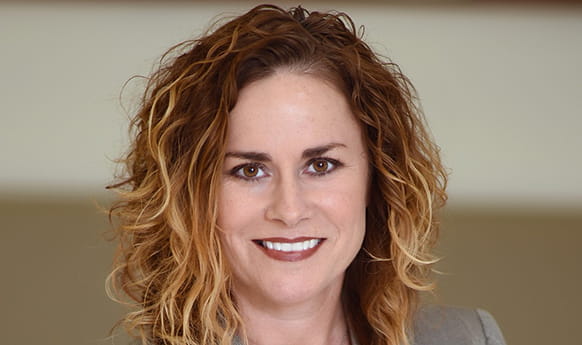Introduction
On September 11, 2019, the California Legislature passed Assembly Bill 5, a landmark employment bill that imposes the “ABC” test on California businesses and workers in determining whether a worker is an employee or an independent contractor. The new law, when signed by Governor Newsom, will retroactively reclassify some California workers from independent contractors to employees. California’s labor laws and regulations along with local municipal ordinances and rules will then apply to newly classified employees, which could result in back pay claims for misclassification.
Although the discussion around AB 5, which is sometimes referred to as the “Uber law” has focused primarily on the impacts on the gig economy, the law extends to companies not directly associated with the gig economy, including franchisors. The effect on franchisors is still unclear and will be heavily litigated. Franchise groups continue to lobby the California legislature for a common-sense exemption for the franchising industry. Lawsuits will likely be filed to test the bounds of AB 5 in the franchising context.
AB 5’s effective date is January 1, 2020, which provides a short timeline for compliance. Unfortunately, AB 5 leaves franchisors with more questions than answers.
AB 5
Assembly Bill (AB) 5 passed the California Senate on September 11, 2019 and was sent to Governor Newsom, who has pledged support and is expected to sign. If signed, AB 5 will become effective on January 1, 2020, and will apply retroactively. Beginning on July 1, 2020, any individual who is an employee under the ABC test must be covered by workers’ compensation insurance.
AB 5 imposes the “ABC” test set forth in 2018 by the California Supreme Court in Dynamex Operations West, Inc. v. Superior Court of Los Angeles, 416 P.3d 1 (Cal. 2018) on California businesses and workers in evaluating whether a worker is an employee or an independent contractor for purposes of labor protections under California law, including the California Labor Code, the California Unemployment Insurance Code, California Wage Orders, and the California Workers’ Compensation Code. The ABC test in Dynamex provides that a worker is presumed to be an employee of an alleged employer unless the worker is performing work free from control of the hiring entity, that the work is “outside the usual course of the hiring entity’s business,” and the person is customarily engaged in independent trade. Dynamex addressed the narrow issue of whether workers were appropriately classified as employees for purposes of California’s wage and hour laws.
Impact to Franchisors with California Units
While the law is largely viewed as a bill applicable to the gig economy, many contend that AB 5 will apply in the franchise context. Although AB 5 excepts certain workers and situations, AB 5 contains no implicit or explicit exception for franchising companies. The IFA heavily lobbied for an exemption for franchising in AB 5, but no such exemption was included.
The application of AB 5 to franchisors as it relates to the franchisee’s employees is not clear and will be heavily litigated. If AB 5 is applied to franchisors, franchisors may be subject to misclassification damages claims by franchisees and their employees.
In addition, some argue that the ABC test is the appropriate standard for determining employer status and joint employment under California labor law, even in the absence of any claimed misclassification. However, the ABC test has not previously been applied to determine whether a franchisor is vicariously liable for the actions of its franchisee. Rather, in a 2014 decision in Patterson v. Domino’s Pizza, Inc., 60 333 P.3d 723 (Cal. 2014), the California Supreme Court applied the “means and manner” control test to determine whether a franchisor possessed the right to control the relevant day-to-day activities of the franchisee’s employees. The Supreme Court determined that a franchisor’s right to impose operating standards on its franchisees is not the type of control that subjects a franchisor to vicarious liability. Therefore, a franchisor was not a joint employer subject to vicarious liability for the alleged wrongdoing of its franchisee’s employee.
In the wake of Dynamex in 2018, some have urged courts to expand the ABC test beyond misclassification claims to redefine the law of joint employment and vicarious liability. This expansion effort will not necessarily change the law of joint employment and vicarious liability in the franchise context as set forth in Patterson. However, there are current efforts to expand Dynamex in the franchise context. For example, in a formerly published Ninth Circuit decision in Vazquez v. Jan-Pro Franchising Int’l, Inc., 923 F.3d 575 (9th Cir. 2019) (opinion withdrawn), the court essentially held that franchise relationships are subject to the ABC test. The Ninth Circuit granted a petition for panel rehearing and the May 2019 opinion has been withdrawn pending a final decision. Furthermore, the question of whether Dynamex should be applied broadly to the franchising model for the purposes of determining joint liability for alleged wage and hour violations committed by a franchisee is being considered in Salazar v. McDonald’s, Appeal No. 17-15673 (9th Cir.).
If the ABC test applies only to the question of whether an individual is an employee or an independent contractor, the impact of AB 5 on franchisors may be more limited, as employee/independent contractor status is generally not an issue. If the ABC test is applied more broadly to determine employer status generally in cases where there is no misclassification claim, franchisors could find themselves liable for labor law violations asserted by franchisee employees.
If you have questions regarding your brand’s strategy for adapting to the new law, please contact the following lawyers.


